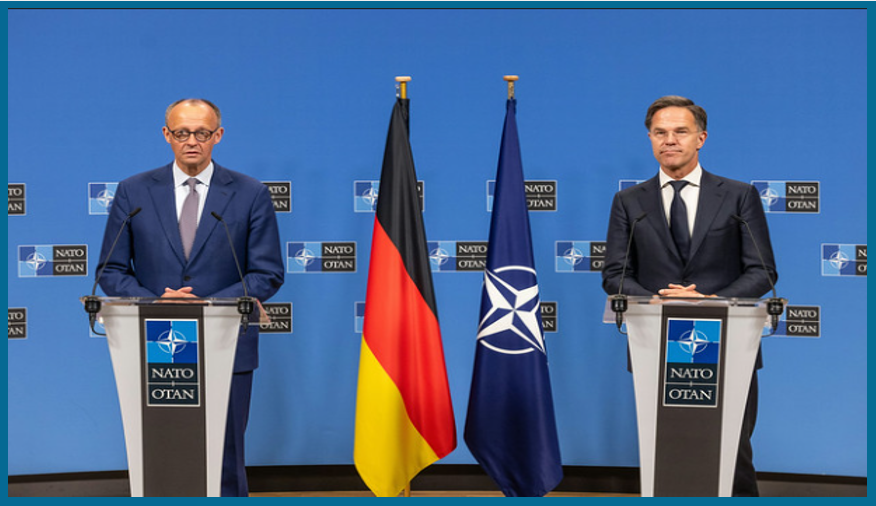Berlin begins evacuations from Israel as diplomatic efforts with Tehran falter
Berlin – German Chancellor Friedrich Merz has called on Iran to pursue negotiations with the United States and Israel following U.S. airstrikes on Iranian nuclear facilities over the weekend. His appeal comes as other European leaders—including French President Emmanuel Macron and UK Prime Minister Keir Starmer—have issued similar statements urging de-escalation.
Chancellor Merz convened Germany’s Security Council early Sunday in response to the strikes, which targeted Iranian nuclear infrastructure. In a public statement, he emphasized the urgent need for diplomacy and warned against further military escalation in the region.
Political reactions within Germany have been divided. Jürgen Hardt, deputy parliamentary leader of Merz’s center-right Christian Democratic Union (CDU), defended the U.S. actions.
“After Iran rejected the European offer to negotiate, a military response by the U.S. was inevitable,” Hardt told Tagesspiegel. “This sets back Iran’s nuclear ambitions by years—for the benefit of Israel, the free world, and Germany.”
Attempts at diplomacy had continued as recently as Friday, when foreign ministers from Germany, France, and the UK met Iranian Foreign Minister Abbas Araghchi in Geneva. The talks, aimed at diffusing tensions and reviving nuclear negotiations, ended without progress.
In contrast to the CDU’s position, Rolf Mützenich, a foreign policy expert with the center-left Social Democratic Party (SPD), expressed disappointment over the deteriorating diplomatic landscape.
“The attempt to uphold international order through treaties and cooperation has been set back by decades,” Mützenich said. He is a key figure behind the recently published “SPD Manifest,” which advocates for global demilitarization and renewed diplomatic approaches to conflict resolution.
German Evacuations Underway
Amid escalating hostilities, Germany has begun evacuating its citizens from Israel and neighboring Jordan. On Saturday, 123 Germans were flown out of Jordan on a charter flight organized by the Foreign Ministry. In total, over 345 German nationals have returned home in recent days via Frankfurt Airport.
Notably, Germany’s armed forces carried out their first direct evacuation flights from Israel since the conflict began. Two German military aircraft landed at Cologne/Bonn Airport early Saturday carrying 64 people, primarily families with children and other vulnerable individuals. The operation followed complex negotiations with Israeli authorities.
Defense Minister Boris Pistorius praised the Bundeswehr’s quick response: “We can rely on our armed forces. Our Air Force crews responded on short notice and carried out the mission with professionalism and care.”
While the German embassy in Tel Aviv remains operational, it is using a registry to track roughly 4,300 German nationals currently in Israel. Many remain in the country but have registered as a precautionary measure.
Deteriorating Conditions in Iran
In Iran, the situation is more precarious. Prior to the U.S. strikes, the German government withdrew non-essential embassy staff from Tehran. Although the embassy continues to provide limited mobile services, Berlin has ruled out organized evacuations, citing viable overland routes to Turkey and Armenia. Nevertheless, the government acknowledged that conditions for travel inside Iran are becoming increasingly dangerous.
Roughly 1,000 Germans are currently believed to be in Iran. As in Israel, Berlin has rejected the use of bus convoys for evacuations, citing the elevated risk from ongoing airstrikes.
Germany’s Foreign Office noted that the decision to scale back operations in Iran followed similar moves by other nations. The British and Swiss embassies in Tehran were also closed on Friday.


